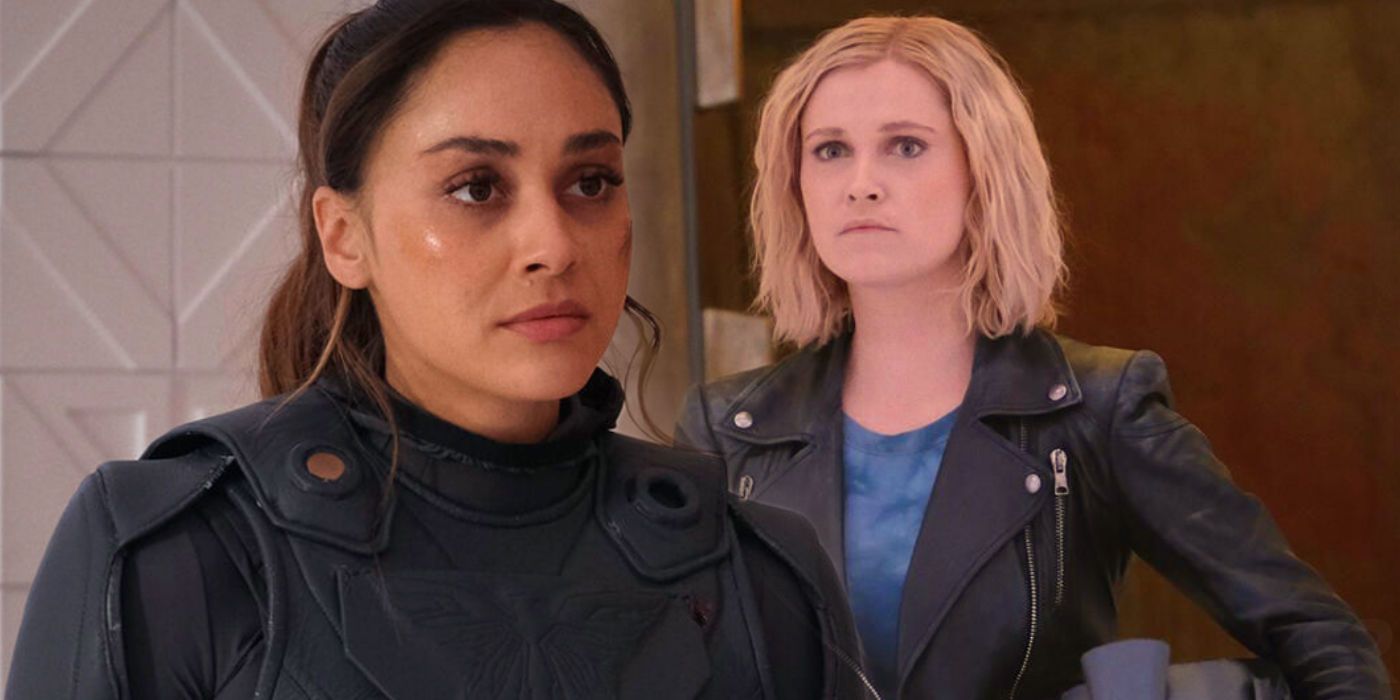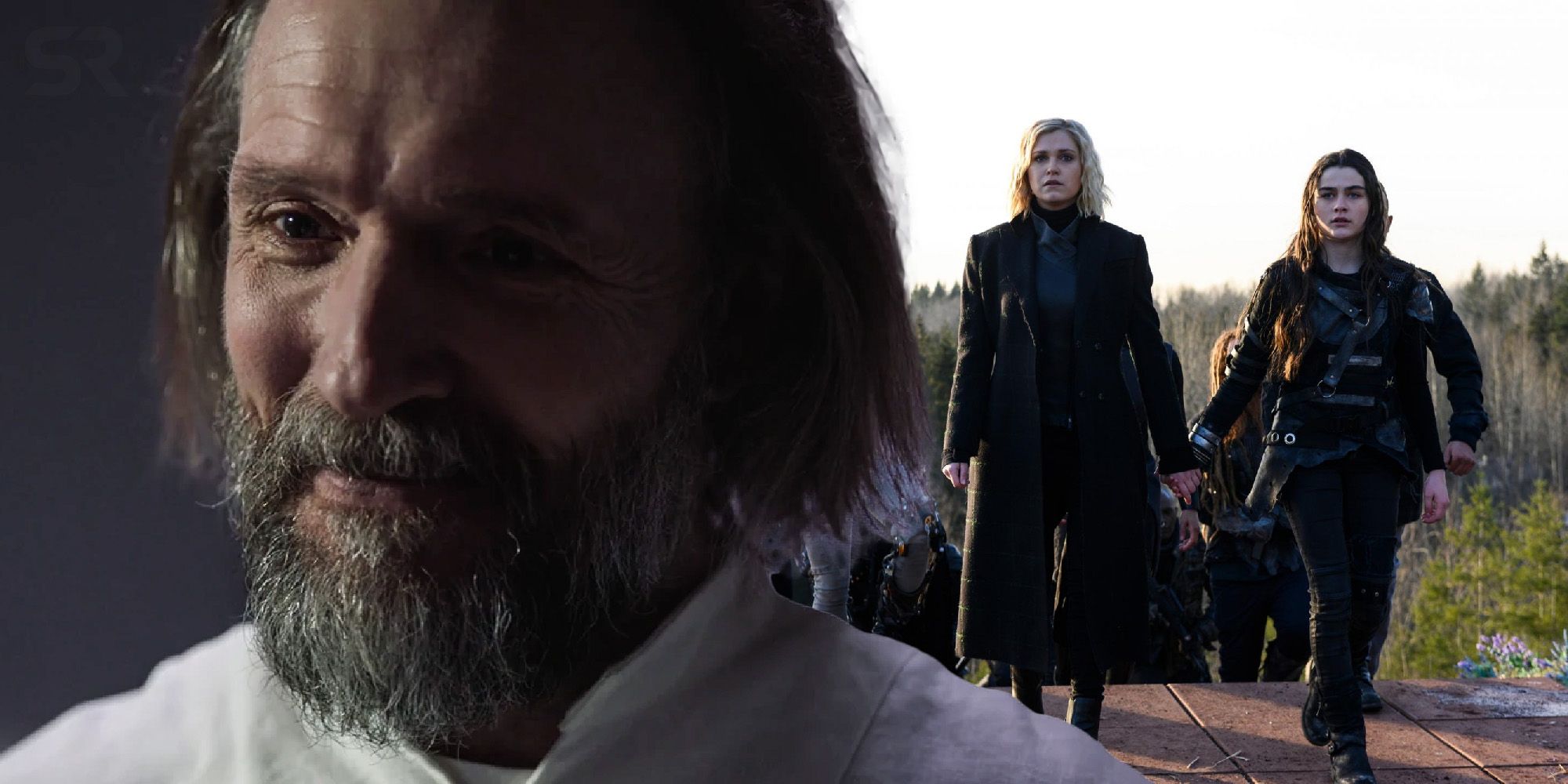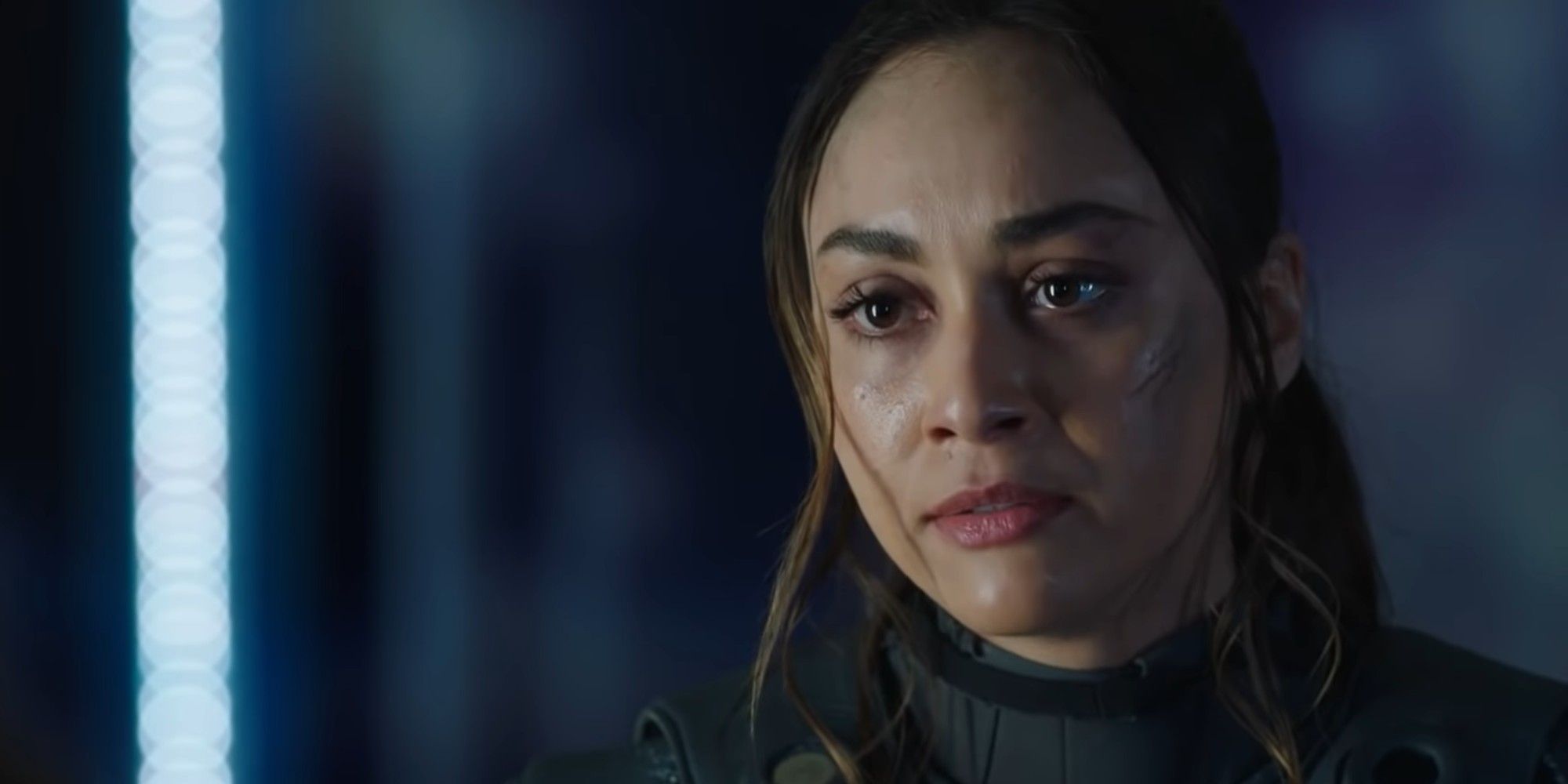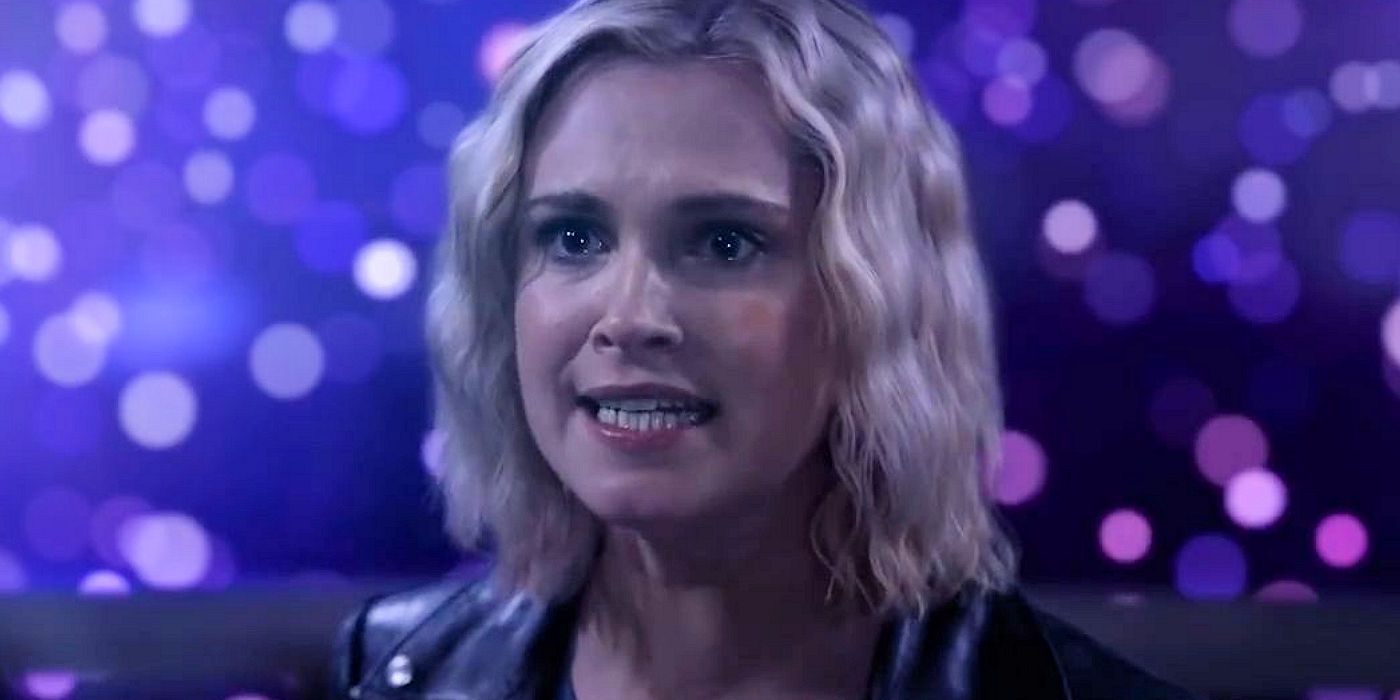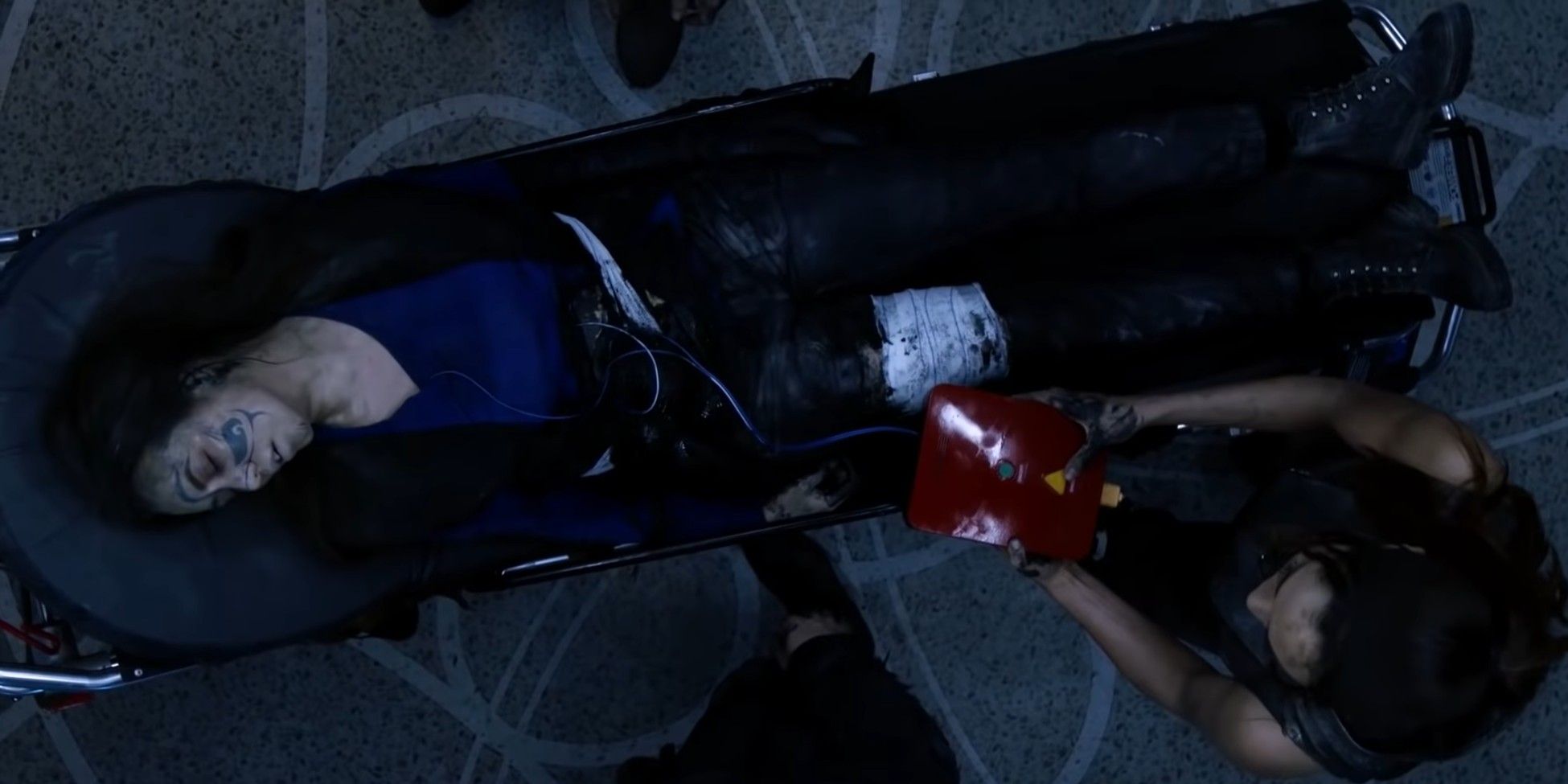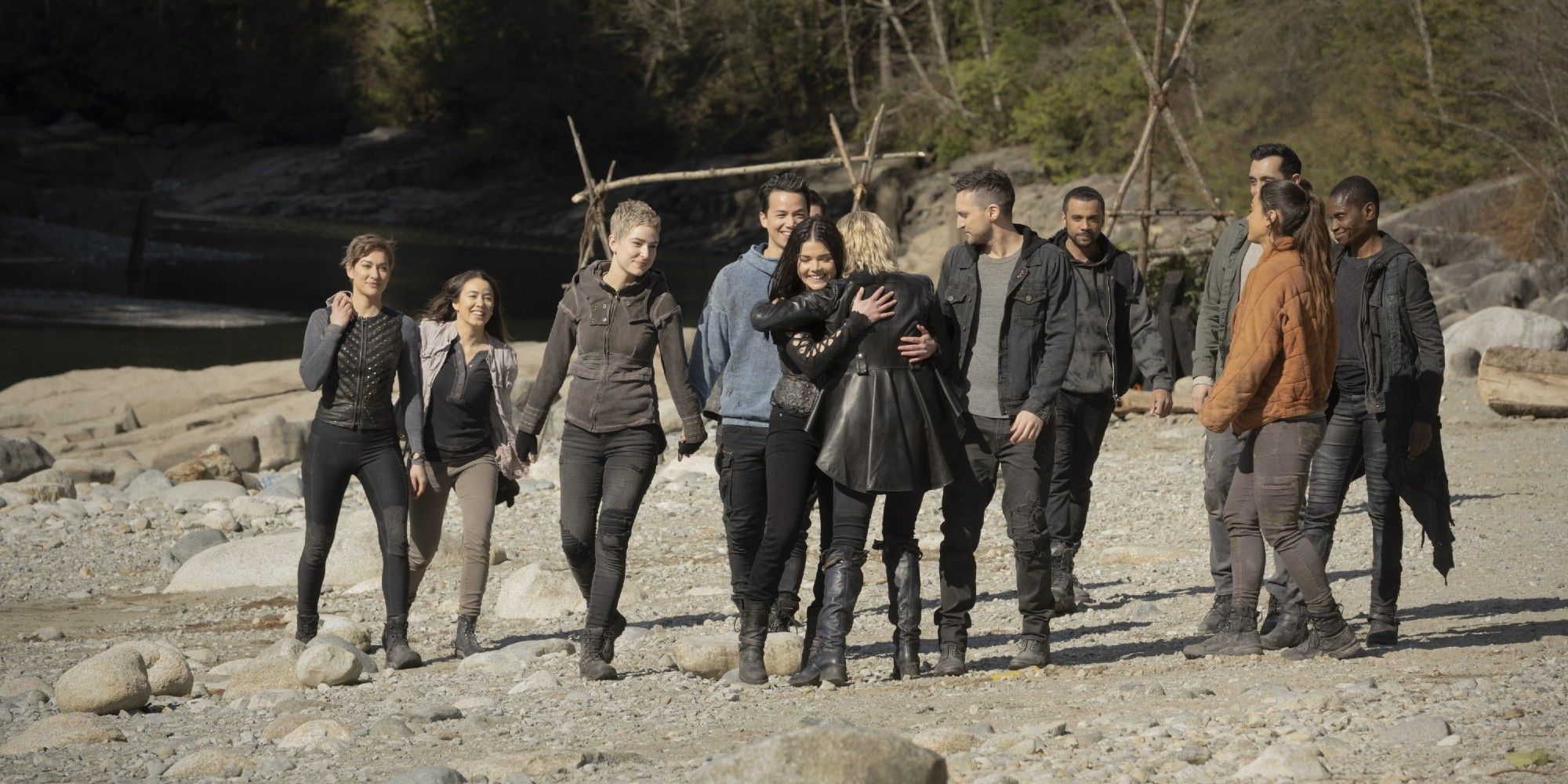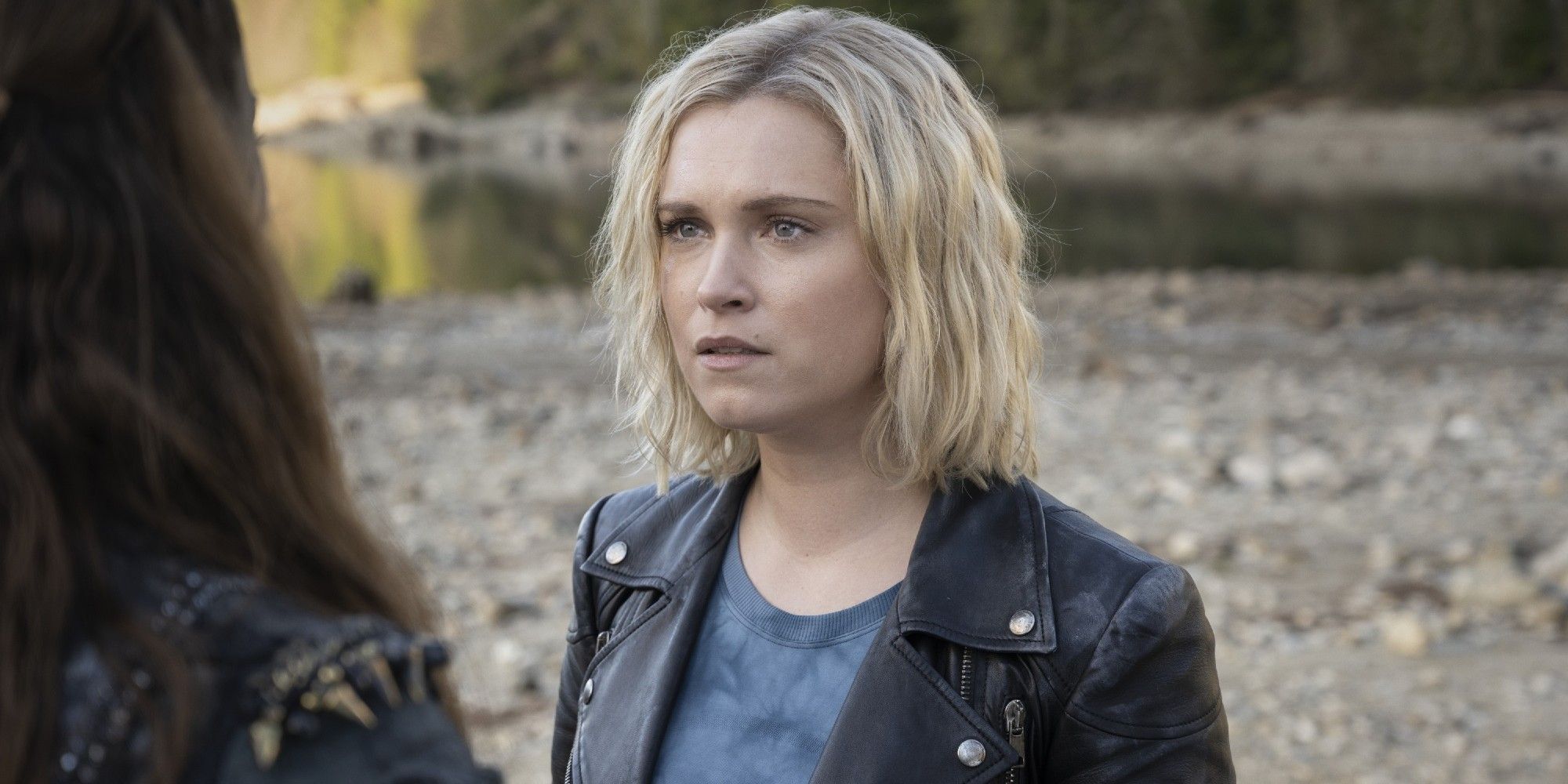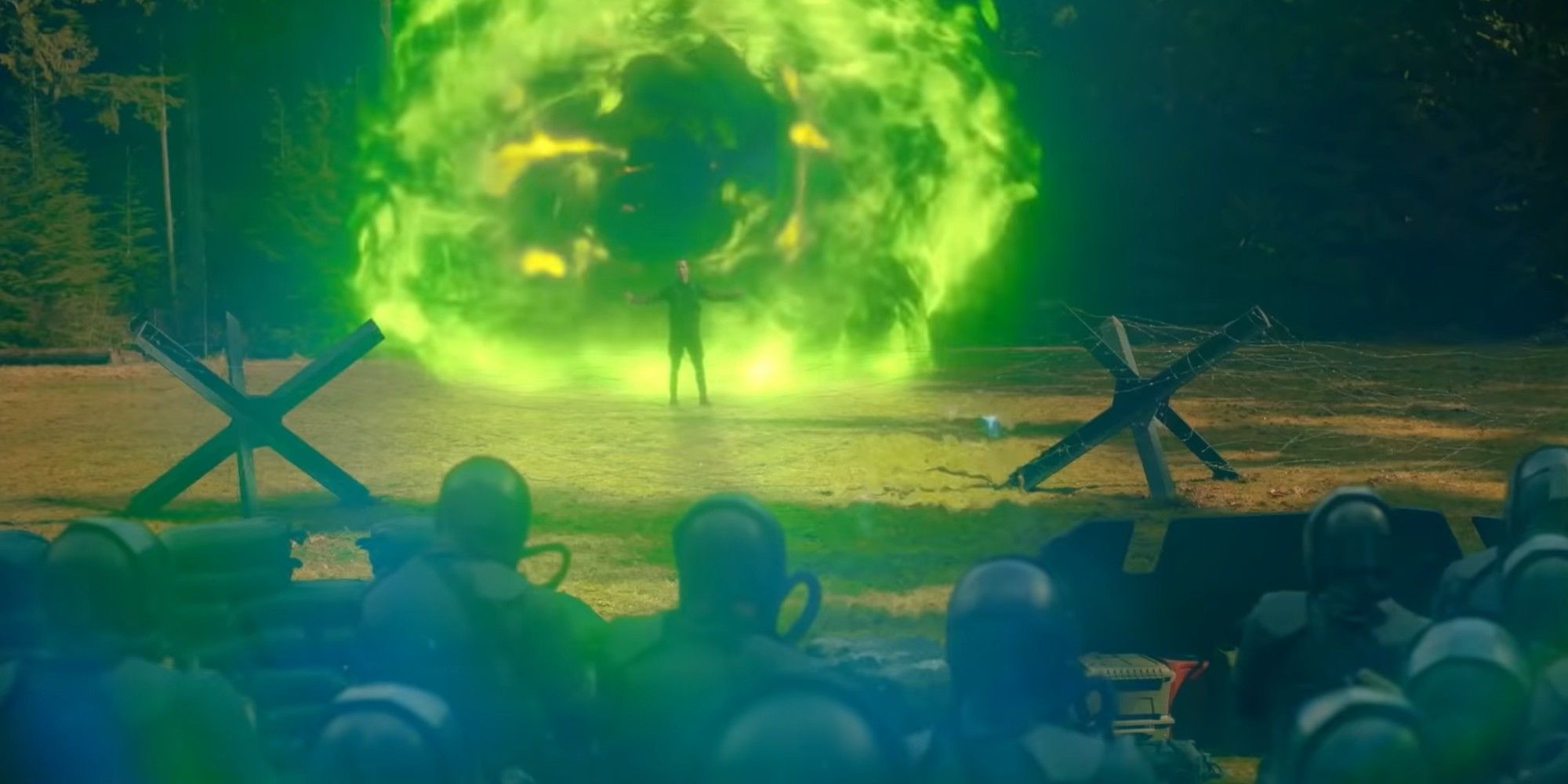The 100 season 7 ends the episode “The Last War”, tying a bow on what has been a rather polarizing season - and overarching story for Clarke Griffin. While there is still the as-yet-unnamed The 100 spinoff in the works, this is the end for the characters audiences have been following since the show began in 2014.
The 100 started off as a rather straightforward adaptation of a young adult book series but quickly matured. It became a show largely about what people are willing to do to save themselves or the people close to them, going to unexpectedly dark places for what started with a relatively light pilot episode considering it was set nearly a century after a nuclear apocalypse.
While the early seasons of The 100 were mostly earthbound, seasons 6 and 7 explored groups of humans that survived by leaving Earth. This was taken to its extreme in season 7, where the show leaned heavily into spirituality, including most of what was left of humanity transcending their physical forms.
What The Last War Really Is
While Cadogan had insisted that humanity was headed towards a last war, he was only partially correct. Jordan actually had the correct reading, that instead of a war, it was a test for humanity. Whoever steps through the Anomaly to reach the Judge represents their species for the chance to transcend if they’re worthy - or be destroyed if they’re not. This is what spooked Becca so much back in “Anaconda” – she knew that humanity wasn’t ready to be judged, so she refused to take the test and tried to stop Cadogan from taking the test himself. (It made sense given that humanity had just doomed Earth in a nuclear apocalypse.)
It’s unclear just how many species have been eliminated by taking the test, as the only one we know about for sure are the Bardoans, but it’s implied that it’s difficult for a species as a whole to pass the test. While Cadogan was wrong in general about there being a war, he was partially correct in this case. The test ends up being the Judge and Raven watching the people of Bardo and Sanctum facing off against each other as things are about to erupt into outright warfare. Instead of the war happening and a victor being declared, however, the objective of the Last War ends up being preventing the war from happening - the opposite of what the Disciples believed.
Why Clarke Failed The Test But Raven Didn’t
While the test is about humanity as a whole, a lot of it is influenced by who takes it. Clarke fails the test because she was driven by the wrong motivations. When Clarke took the test, she was filled with grief and anger, killing random Disciples on the way to the Stone Room just because they were there. There may have been a time where she could have made a better case, when she was willing to sacrifice and make hard decisions for selfless reasons, but Clarke was the wrong person at the time, exacerbated by the fact that Madi had effectively "died".
Raven, meanwhile, passed the test because of her perseverance. Earlier in The 100 season 7, Raven was pushed towards being more ruthless like Clarke but stopped herself short because she didn’t want to be that kind of person. Clarke failed, but Raven wouldn’t let that be the end and was insistent that humanity could be saved, going back in and forcing the Judge to test them again. Raven didn’t give up here when it looked like Sheidheda would cause war to break out, as she’s always done. The best example comes from season 4, when Raven even went as far as killing herself and rigging up a defibrillator to revive her because that’s what it took to help save people (which was referenced in the finale), and that persistence paid off in saving humanity.
Raven didn’t do it alone, though, with Octavia also playing a pivotal role. While Raven made the case to the Judge that humanity was worth transcending (or, at least, being allowed to live and be retested later on), Octavia proved humans were indeed good. Back in season 5, Octavia led Wonkru into a pointless war that destroyed the last remaining survivable land on Earth because she didn’t want to lose. Here, she stood between two armies, who were ready to open fire indiscriminately, and talked them down from fighting, proving Raven’s point that people can be saved - even those who have fallen into the deepest pits of despair.
Why Clarke Can Never Transcend
Clarke finds herself left on Earth after the rest of humanity transcends, seemingly with only Russell’s dog, Picasso, as company. While Clarke thinks this is a continuation of her need to bear the consequences instead of others, the Judge explains that’s not necessarily the case. It’s not because she failed the test or because of her many mass murders, such as the genocide at Mount Weather. Instead, it was Clarke killing Cadogan that excluded her. While humanity as a whole was deemed worthy, Clarke crossed a line that no one from any species had before when she killed someone while they were taking the test, something that had never happened before. The Judge deemed this unacceptable, so Clarke wasn’t allowed the choice to transcend like everyone else.
How Emori Transcends & Lives (Despite Dying)
It’s established early in the finale that someone cannot transcend after they’ve died. Levitt explains this to Octavia in the context of Bellamy not getting to transcend despite his belief, which leads to her desperation in keeping Echo and Levitt alive just a little bit longer at the end.
This just asks the question of how Emori transcends, since she dies early in the episode. The key to this is her Mind Drive. She and Murphy took over the roles of Daniel and Kaylee Prime at the end of The 100 season 6 in exchange for the Mind Drives. Jackson installs Emori’s Mind Drive in Murphy’s body after Emori dies, intended to give them just a short time together. Instead, Emori is allowed to transcend, meaning that however the Judge determines who’s alive or dead isn’t just tied to their original body - it's likely their mind. This makes sense considering Madi transcends as well, despite her being completely paralyzed - which the Judge doesn't think of as dead, which Clarke rebukes.
While it’s satisfying to see Emori get the chance to transcend, it leaves the fate of a couple of other characters unclear. Is just having the Mind Drive enough to transcend? If so, then Ryker and Gabriel should also have transcended, as there was never a confirmation of either of their Mind Drives being destroyed. Ultimately, since neither was a major character until much later in the story, leaving that loose end untied isn’t a big issue.
Everyone Who Refuses Transcendence & Why
After Clarke finds herself seemingly alone on Earth, the Judge explains that transcendence is actually a choice, not something forced upon everyone. Everyone in the past had chosen to transcend, but it’s revealed that many humans opted out (which the Judge considers a strange curiosity), and audiences see that many of Clarke’s friends have returned to Earth: Raven, Murphy, Emori, Octavia, Indra, Gaia, Jackson, Miller, Echo, Niylah, Jordan, and Hope.
No one explains why they chose to come back rather than transcend, but it’s not too difficult to see some reasons why. Without them, Clarke would be left alone on Earth without any of her friends. This already happened at the end of The 100 season 4, with Raven, Murphy, Emori, and Echo going up to space and Octavia, Indra, Gaia, Jackson, Miller, and Niylah remaining in the bunker, leaving Clarke alone on the surface for six years. Given the chance, they’re not going to leave her alone again.
They were also choosing to live on their own terms, rather than surrender themselves to a greater power, paralleling the City of Light from season 3. While survival was guaranteed in transcending, there’s a difference between surviving and living, as Murphy emphasized earlier in the episode talking to Emori in the Mindspace. By refusing transcendence, Clarke’s friends chose to live as humans, with all the messiness that it entails.
The 100’s Final Scene & Season 1 Callback
The 100 season 7's final scene flashes back to Clarke drawing in her cell from the pilot episode - in fact, it was the opening scene of the series. While it’s hard to tell what Clarke's drawing it was, it looked like a drawing of people on Earth. This was an idealistic drawing of what it would be like to be on Earth. When she was still considered a child, back before she knew what things were like on the ground, Clarke was imagining the peaceful idea of what life would be like when people returned to the ground. The scene Clarke walks into is that expectation realized. This is everyone who has survived every challenge alongside Clarke, and they now get that chance to live peacefully on Earth. She’s finally at peace, getting the ending that she’d dreamed of all those years before.
The 100 Ending’s Real Meaning Explained
The 100 has been about fighting from early on: fighting between members of the delinquents; battles with the grounders; escaping Mount Weather; defeating ALIE; racing against time with Praimfaya; fighting the Eligius IV crew; surviving Sanctum; and then finally taking on Cadogan and his Disciples. There’s either always been a war going or one just over the horizon. In the end, though, the fighting didn't win the day. There have always been characters pushing for peace, starting all the way back with Finn trying to make peace with the Grounders in season 1. Clarke fought for peace many times herself, from acting as ambassador to Lexa in season 3 to stopping Echo from killing everyone in Bardo in season 7. Octavia was the peacemaker at the end, not Clarke, but it’s been a part of the show’s DNA the whole time.
That fighting doesn’t work because, in the end, even the people we oppose are still human and we’ll all share in the same fate. Octavia and Diyoza were the leaders of opposing armies in season 5. And when their war broke out, it destroyed their chance to live on Earth, so it didn’t matter which side they were on. Despite that, they became family when they were ostracized from Sanctum and later stranded on Skyring, raising Hope together. Almost everyone who appears with Clarke at the end had stories like this: Emori held a knife to Murphy’s throat when they first met, Echo almost killed Octavia, Murphy shot and nearly paralyzed Raven, Levitt was part of torturing people, and yet they prospered after realizing they were all human and there was no point in dividing themselves.
This closely parallels the City of Light from season 3 - with a big difference. Transcendence, like joining the City of Light, is a literal way of bringing all of humanity together as consciousness with no pain or death. ALIE was doing it to save humanity, but there was a difference between ALIE and the Judge: choice. Clarke tries to get ALIE to make the City of Light a choice, but she refuses to do so. The Judge lets people make that choice instead, and many of them do. Clarke’s friends choose to live the messy lives of being human - after learning to cope with the idea of being human, even with all of the pain associated with it - while everyone who transcends was given the opportunity not to.
And so The 100 ends with humanity showing that they’re deserving of the opportunity to do better. Even at the brink of war, they can find common ground and do much better than fighting or destruction. Humanity is capable of peace if given the choice, even if it’s incredibly difficult to get there.

